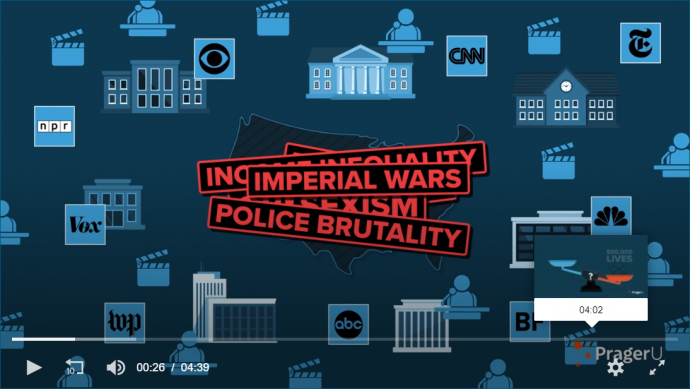This new video from Prager University “Goodbye, America” is so good — here is just one excerpt:
When you raise a generation of Americans to hold their country’s past in contempt by exaggerating America’s faults and ignoring its triumphs, then they will have no respect for American institutions or the beliefs on which the nation is based.
It hasn’t always been this way. Until the last few decades, liberals and conservatives alike shared a common understanding of America’s origins, its history, and its mission of spreading liberty—within America and around the world.
Here is the introduction on the PragerU webpage:
How is America to be defined? By its failures or its triumphs? Today, there seems to be an obsession with the former and a dismissal of the latter. Is this dark vision of the freest and most prosperous nation on earth an accurate narrative or a cynical distortion? James Robbins, columnist for USA Today and author of “Erasing America,” considers that question in this video. How we view America’s past will very much shape America’s future.
Here is the opening of the transcript:
Do you remember America?
If you read about it in a history textbook, you probably learned about a land of oppression, racism, sexism, income inequality, police brutality, and imperial wars. (Aside from that, it was a great place.)
That is how America is portrayed in most American high schools and colleges—and in America’s media, films, and by its progressive politicians.
In the words of filmmaker Michael Moore, America is “a nation founded on genocide, built on the backs of slaves, and maintained through the subjugation of women to second-class citizenship and economic disempowerment.”
Is that America’s history? Is that who Americans were—and are?
George Orwell understood that the most effective way to destroy a people is to deny and obliterate their own understanding of their history.
History is much more than a collection of facts. History, and our understanding of it, tells us who we are as a people in the same way your personal memories and experiences define and shape who you are.
Wipe out your memory, and you wipe out your identity.
Read more and watch the video: Prager University

